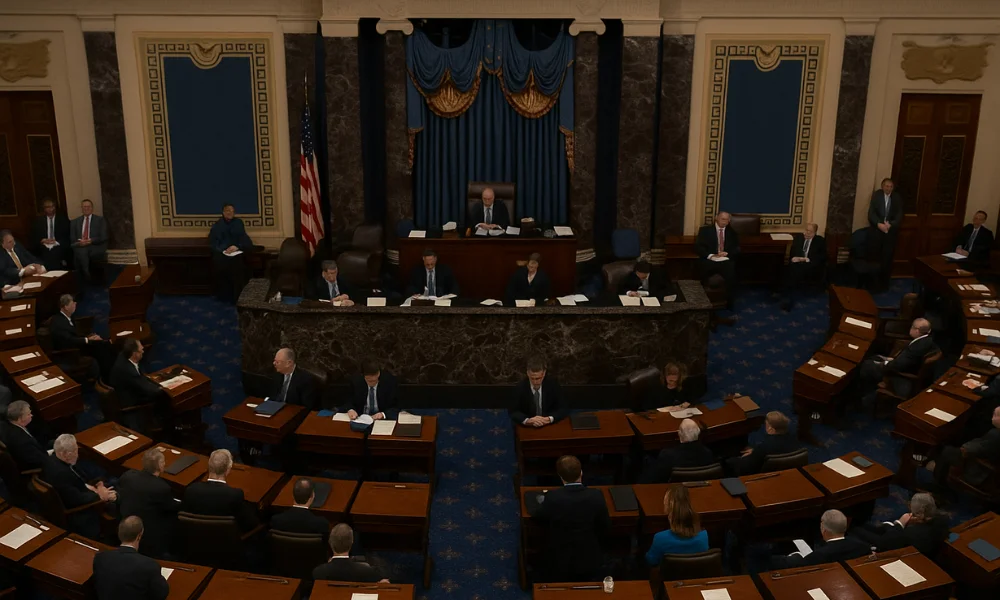In a surprise turn, the US Senate has struck down a 10-year ban that would have stopped states from passing their own AI regulation laws. The move reshapes who controls AI policy in the United States and what it means for Big Tech.
In a dramatic vote-a-rama session, the Republican-led Senate voted 99-1 to strip out a federal ban that would have blocked state AI regulation for the next decade. The ban was originally part of President Trump’s sweeping tax-cut and spending bill, but an amendment from Senator Marsha Blackburn changed the game.
Republican Senator Thom Tillis was the only one to back keeping the ban. Hours later, the Senate narrowly passed the final Trump tax bill 51-50, but without the controversial AI restriction.
Big AI companies like Google and OpenAI have pushed hard for federal-only AI rules, warning that different state AI laws could slow innovation and create compliance headaches. But lawmakers across the aisle argued that states must keep the right to protect people from risks like deepfakes, AI-powered robocalls, and unsafe autonomous vehicles.
Key Takeaways:
- The US Senate removed a 10-year ban on state AI regulation.
- Big Tech wanted federal-only AI governance, but states now have power.
- States can pass AI consumer protection laws for child safety, deepfakes, and robocalls.
- The bill still funds a $500M AI infrastructure program.
Some Republicans and tech leaders fear a messy patchwork of AI legislation, but Senator Maria Cantwell, top Democrat on the Commerce Committee, says local protections come first. Arkansas Governor Sarah Huckabee Sanders agreed, celebrating that states can now safeguard kids from “the harms of completely unregulated AI.”
Blackburn had first proposed a compromise to shorten the ban to five years and allow states to tackle issues like protecting artists’ voices and online child safety without creating an “undue burden” on AI companies. But she later pulled her support, insisting states need freedom to act until Congress delivers strong, federally preemptive AI rules, like the Kids Online Safety Act.
This means the fight over AI policy in the United States now shifts to statehouses. Expect battles over AI safety laws, data privacy, and how to rein in emerging risks—while balancing the growth of America’s AI industry.
